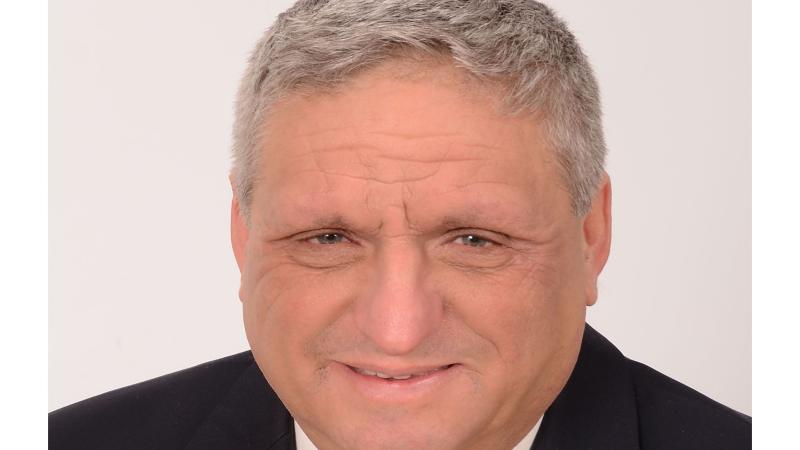Rusak recognized for his contributions to fluid dynamics
December 19, 2016

Troy, N.Y. — Zvi Rusak, professor of mechanical, aerospace, and nuclear engineering at Rensselaer Polytechnic Institute, has been named a fellow of the American Physical Society (APS). Rusak was recognized for his contributions to the field of fluid dynamics, including theoretical research that explains various complex fluid flow phenomena and informs the aerodynamic design of aircraft and turbomachinery.
The APS Fellowship Program recognizes members who have made advances in physics through original research and publication, or made significant innovative contributions in the application of physics to science and technology. Each year, no more than one-half of 1 percent of the society membership is recognized by their peers for election to the status of fellow in the American Physical Society. Rusak was recognized by the Division of Fluid Dynamics for his “seminal contributions to the theoretical understanding of vortex flow stability and the vortex breakdown phenomenon, and for insightful analytical studies of viscous flow dynamics, transonic flows, and aerodynamics of airfoils.”
Shekhar Garde, dean of the School of Engineering at Rensselaer, said the recognition is well-deserved. “Being elected a fellow of APS is a wonderful recognition of Professor Rusak’s fundamental research in complex and dynamic field of fluids,” said Garde. “His work stands out for its blend of theory and computation, as well as for its high impact on important practical problems, from aerodynamics of aircraft wings to rotorcraft design. We congratulate him on this honor.”
“It is a great honor to be recognized by colleagues from the physics and the engineering communities for my fundamental research contributions in fluid mechanics and aerodynamics,” said Rusak. “My current research focuses on developing novel nonlinear global-analysis mathematical methods for exploring the dynamics and control of additional flow phenomena including the stability of compressible vortex flows, separation and stall of wings and rotating blades, and combustion with swirl.”
Rusak, who has published more than 250 papers, has made seminal contributions to the understanding of fluid flows, the science of liquids, and gases in motion. His research applies to both aeronautical and mechanical engineering systems, including design of aircraft wings, helicopter blades, wind and hydroelectric turbines, and combustors. He has served on the Rensselaer faculty since 1991.
In addition, his studies in transonic aerodynamics aim to design aircraft wings to minimize their drag due to the appearance of shock waves. Other studies seek to improve the maximum lift of wings by modifying their shape to delay flow separation and stall.
Rusak’s publications include more than 80 archival journal papers, including papers in the Journal of Fluid Mechanics, the Physics of Fluids, the AIAA Journal, and the ASME Journal of Fluids Engineering, the four premier journals in the field. Formerly, he served on the editorial board of the ASME Journal of Fluids Engineering and now serves on the editorial board of the AIAA Journal. Rusak also works on various technical committees of the ASME and the AIAA. Last year, he was recognized as a fellow of the American Society of Mechanical Engineers (ASME).
Rusak earned bachelor’s and master’s degrees in aeronautical engineering from the Technion-Israel Institute of Technology, in Haifa, Israel. He worked as an aeronautical engineer at the Israeli Air Force, where he headed the aeroelasticity group. He received his doctorate in aerospace engineering from the Technion-Israel Institute of Technology. He came to Rensselaer as a postdoctorate associate in the mathematical sciences department, working with Professor Julian D. Cole.
Rusak’s research exemplifies the vision of The New Polytechnic, an emerging paradigm for teaching, learning, and research at Rensselaer, the foundation of which is the recognition that global challenges and opportunities are so great they cannot be adequately addressed by even the most talented person working alone. Rensselaer serves as a crossroads for collaboration — working with partners across disciplines, sectors, and geographic regions — to address complex global challenges, using the most advanced tools and technologies, many of which are developed at Rensselaer. The New Polytechnic is transformative in the global impact of research, in its innovative pedagogy, and in the lives of students at Rensselaer.
About Rensselaer Polytechnic Institute
Rensselaer Polytechnic Institute, founded in 1824, is America’s first technological research university. For nearly 200 years, Rensselaer has been defining the scientific and technological advances of our world. Rensselaer faculty and alumni represent 84 members of the National Academy of Engineering, 17 members of the National Academy of Science, 25 members of the American Academy of Arts and Sciences, 8 members of the Institute of Medicine, 5 members of the National Academy of Inventors, and 4 members of the National Inventors Hall of Fame, as well as a Nobel Prize winner in Physics. With 7,000 students and nearly 100,000 living alumni, Rensselaer is addressing the global challenges facing the 21st century—to change lives, to advance society, and to change the world. For more information, please visit http://www.rpi.edu.
About APS
The American Physical Society is a nonprofit membership organization working to advance and diffuse the knowledge of physics through its outstanding research journals, scientific meetings, and education, outreach, advocacy, and international activities. APS represents over 53,000 members, including physicists in academia, national laboratories, and industry in the United States and throughout the world. Society offices are located in College Park, Maryland (headquarters), Ridge, New York, and Washington, D.C.